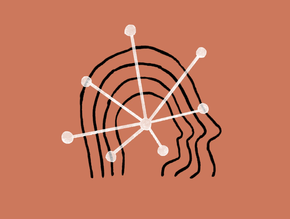SAP Continues to Develop its Enterprise AI Cloud Strategy

With AI business investments continuing to grow worldwide, plenty of companies are building their own enterprise AI platforms in order to support their internal staff and client bases.
In fact, according to a recent IBM survey, consumer interest in AI has surged, highlighting how the technology can improve business and customer experience.
In line with this, SAP this week announced that its SAP HANA Cloud, its most adopted service within the SAP Business Technology Platform, is now generally available.
Simplifying AI for customers
Aiming to be a leading generative AI (Gen AI) product, SAP HANA Cloud is designed to enable SAP customers to combine the power of large language models (LLMs) with real-time data in one database.
With this database-as-as-service offering, SAP HANA Cloud is quickly becoming a go-to solution for intelligent data applications. It is already widely adopted within the SAP Business Technology Platform and seeks to offer business process contexts, by enabling LLMs to leverage relevant organisational data to deliver more accurate and contextual outputs.
“Our customers will now benefit from the vector engine’s multi-model capabilities, enhanced search and analysis, personalised recommendations, and optimised LLMs,” company CTO Juergen Mueller said via a LinkedIn post.
“By utilising the similarity between vectors, businesses can solve complex problems and create next-generation solutions that interact more naturally with users.”
Building the best enterprise AI capabilities
As of April 2024, more than 180 different applications and services are using SAP HANA Cloud with its multi-modal capabilities.
Adding the vector engine to SAP HANA Cloud establishes it as the default database in SAP’s Gen AI solution strategy. Customers will be able to create improved user experiences alongside other services within the platform.
Customers that are building intelligent data applications can use services together to augment LLM queries with relevant context for meaningful answers.
In recent months, SAP has heavily committed to investing in its AI strategy and products, having restructured key business areas to prioritise rapid technology growth. As of January 2024, the company anticipates a total revenue of more than €37.5bn (US$41bn) in 2024.
SAP has already built several enterprise AI platforms, including Joule in 2023 which acts as a Gen AI copilot to transform the way business runs.
In an interview with AI Magazine, SAP’s Global Head of AI, Walter Sun, said: “Businesses trust SAP to improve their processes and help them be successful. To that end, I want our AI unit to build the best capabilities into our offerings to ensure our customers get differentiated AI capabilities which can truly bring strong value and positive change into their daily work through the use of the latest technology available.”
************
Make sure you check out the latest edition of AI Magazine and also sign up to our global conference series - Tech & AI LIVE 2024
************
AI Magazine is a BizClik brand






